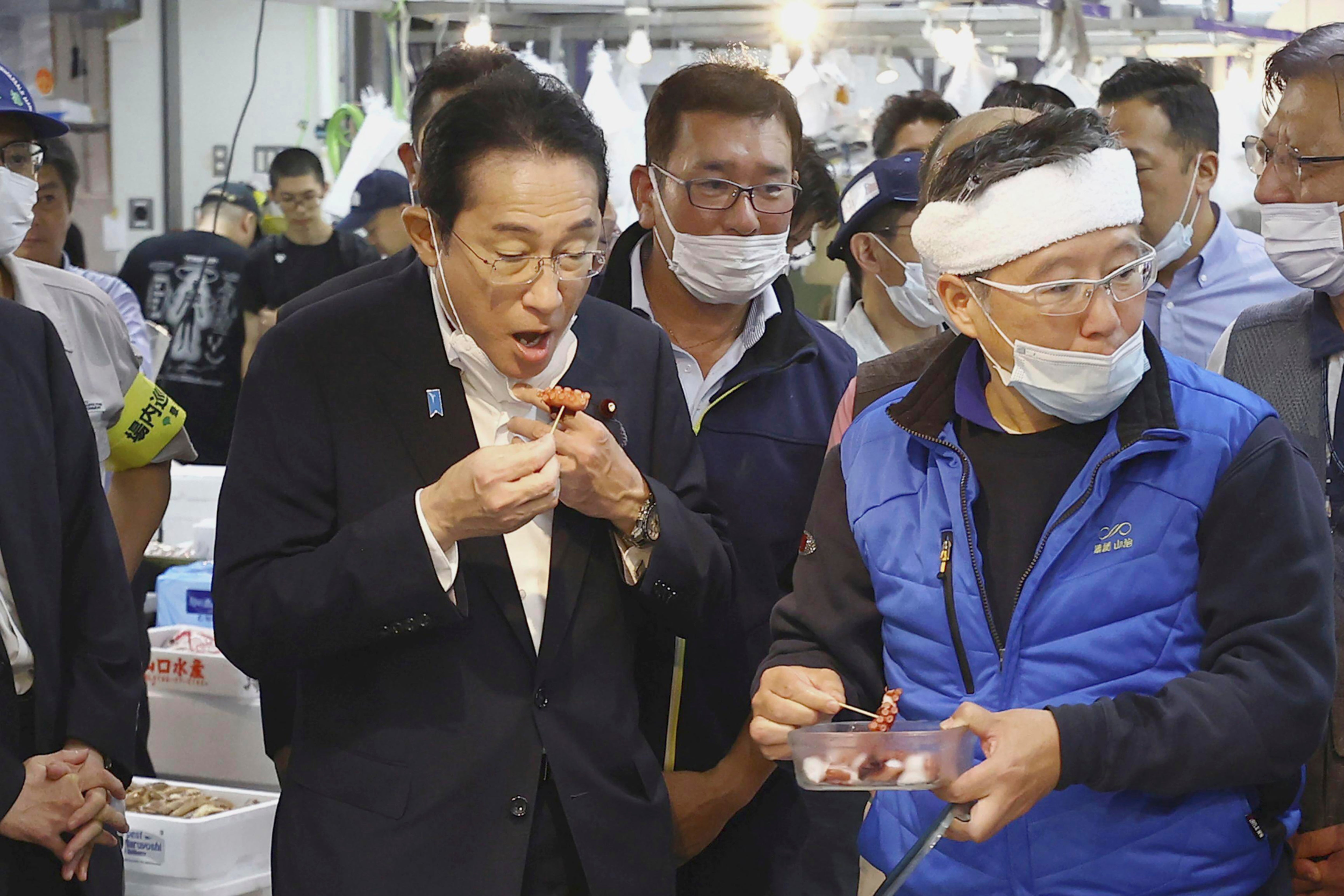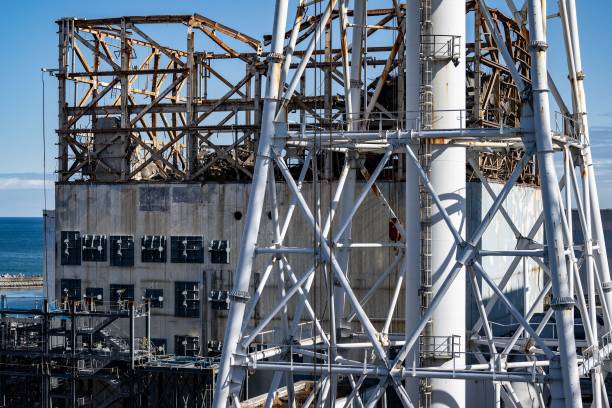Japan hits out at China’s ‘unacceptable’ seafood ban as it rolls out emergency fund
Mainland China is biggest overseas market for Japanese seafood, accounting for 22.5 per cent of total business
China’s ban on Japanese seafood after the release of treated water from the Fukushima nuclear plant was “totally unacceptable”, Japan told the World Trade Organization on Monday.
The statement from the foreign ministry comes as prime minister Fumio Kishida announced an emergency fund of $141m for exporters hit by China’s restriction.
The release of the treated wastewater into the ocean, which began on 24 August and is expected to continue for decades, has been strongly opposed by fishing groups and by neighboring countries.
China immediately banned all imports of Japanese seafood in response. The move was aimed at preventing “the risk of radioactive contamination of food safety caused by Japan’s Fukushima nuclear-contaminated water discharge”, and to protect the health of Chinese consumers, the Chinese customs department said in a statement.
However, the Japanese government defended the decision saying that the measure was necessary for the extensive work spanning decades aimed at decommissioning the facility.
Despite assurances by Japan and the approval of a two-year International Atomic Energy Agency (IAEA) investigation which deemed the water safe to release, several neighbouring countries expressed scepticism over the plan.
The chief executive of Hong Kong, John Lee, criticised the release as “irresponsible”, saying that it posed “impossible risks to food safety and the irreparable pollution and destruction of the marine environment”.
In an apparent effort to show that it is safe to consume seafood from the area, Mr Kishida ate fish from Fukushima fish sashimi at a lunch meeting last week.

Earlier last week, some Japanese officials had signaled the country may file a WTO complaint against China over the ban, which the US ambassador to Japan said the United States would support.
Japan will explain the safety of the released water at diplomatic forums, including the Asean Summit in Indonesia and G20 Summit in India this month, chief cabinet secretary Hirokazu Matsuno told reporters today.
"Nothing is decided about a Japan-China leaders’ meeting," added Mr Matsuno, Tokyo’s top government spokesperson. Japanese prime minister and China’s premier Li Qiang will attend the Asean and G20 summits, while Chinese president Xi Jinping is skipping both conferences.
Chinese trade restrictions have affected Japanese seafood exporters even before the release began, with shipment held at customs for weeks.
Prices of scallops, sea cucumbers and other seafood popular in China have plunged. The ban has affected prices and sales of seafood from places as far away from Fukushima as the northern island of Hokkaido, home to many scallop growers.
Mainland China is the biggest overseas market for Japanese seafood, accounting for 22.5 per cent of the total business, making a ban a major blow for the industry.

Mr Kishida said the emergency fund is in addition to $547m that the government previously allocated to support fisheries and seafood processing and combat damage to the reputation of Japanese products.
“We will protect the Japanese fisheries industry at all costs,” Mr Kishida said, asking people to help out by serving more seafood at dinner tables and other ways.
The money will be used to find new markets for Japanese seafood to replace China and fund government purchases of seafood for temporary freezing and storage.
The government will also seek to expand domestic seafood consumption, while simultaneously cultivating new export destinations in Taiwan, US, Europe, the Middle East as wells as Southeast Asian countries.
Additional reporting from the agencies


Join our commenting forum
Join thought-provoking conversations, follow other Independent readers and see their replies
0Comments